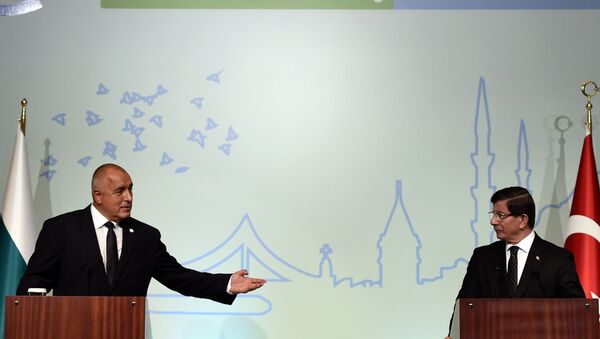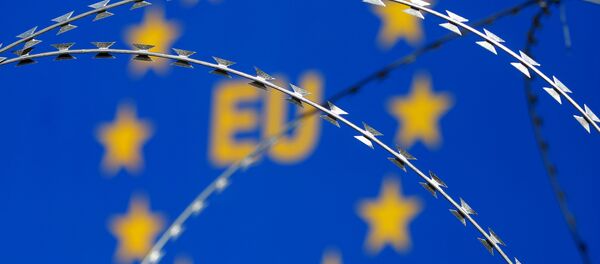The EU foreign ministers' meeting comes ahead of Thursday's EU summit, where both European and Turkish leaders will look to agree on a binding solution to the migration crisis.
The proposed deal between Brussels and Ankara was announced last week, with Turkey to receive US$6.6 billion in EU aid in return for greater efforts to stem the flow of refugees and migrants into Europe.
Migration topped today's Justice and Home Affairs Council agenda: https://t.co/tKC0bpKQ2s. #migrationEU #EU2016NLhttps://t.co/RdjugvNKS9
— EU Council (@EUCouncil) March 10, 2016
While EU leaders have sought to look at the migration crisis as an independent issue, Turkish officials have used the talks to try and speed up the country's long-stalled EU accession talks, with calls for fewer restrictions to be placed on Turkish citizens in the EU.
Cyprus: 'We Will Not Lift Our Veto'
While there are concerns over the practicality and legality of the EU-Turkey deal in regards to reducing refugee flows, some EU states are growing increasingly worried about Ankara's push for EU membership, with the deteriorating security situation in Turkey further complicating matters.

Cyprus has threatened to block the deal amid calls for the EU to speed up talks relating to Turkish membership of the European Union.
"We will not lift our veto on those chapters," Cyprus Foreign Minister Ioannis Kasoulides told Politico.
#Turkey's EU accession process is a pantomime — it will not become a member in our lifetime — Fadi Hakura #r4today
— Chatham House (@ChathamHouse) 14 March 2016
Kasoulides said any attempts to admit Turkey into the EU would only harm efforts at unifying Cyprus, which is currently divided between Greek-Cypriot and Turkish-Cypriot governments.
"For the first time the talks have been going well, and for the first time now [Turkey] wants something in advance. When we resolve the problem, everything will be lifted."
Bulgaria: Deal Should Not Just Focus on Greece
In a letter to European Council chief Donald Tusk, Bulgarian Prime Minister Boyko Borisov said any refugee deal should not just focus on flows of people between Turkey and Greece, but should also take into account the migration route between Turkey and Bulgaria, as well as other EU maritime borders such as the Black Sea.
"Bulgaria would not be ready to accept a partial Turkish engagement (only for the Greek islands) which will most probably lead to opening up of new migration routes," Borisov said in the letter.
Adding to Cypriot concerns, the prime minister also warned against plans to speed up visa liberalization processes for Turkish citizens in the EU, saying the process "cannot be calendar driven and should remain directly bound to the implementation of the EU-Turkey readmission agreement."
I will travel to Cyprus for talks with President @AnastasiadesCY Tuesday ahead of #EUCO
— Donald Tusk (@eucopresident) 12 March 2016
EU foreign ministers are meeting on Monday, with the EU summit to kick off on Thursday in Brussels.



